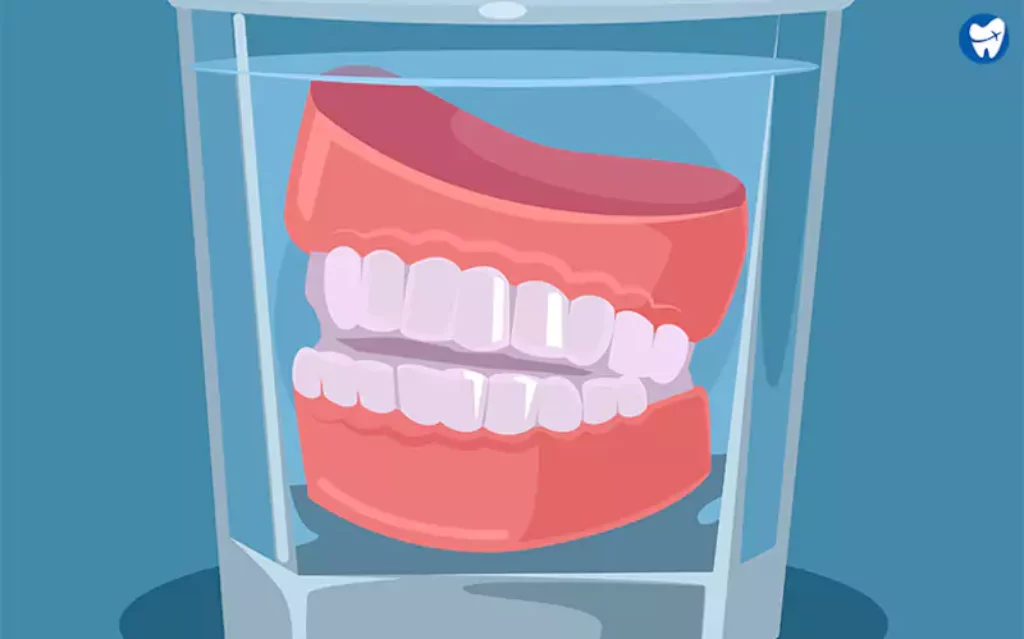Dentures can improve the appearance of your smile, help you chew and speak more effectively, and support the structure of your face. Denture aftercare can improve oral health and prevent remaining teeth from shifting out of place. They’re also a cost-effective solution for replacing missing teeth.
With proper care, dentures can last for several years. Dentex Dental said that proper denture aftercare is essential for maintaining the health of your mouth, ensuring your dentures fit comfortably, and preventing issues like staining, bad breath, and gum irritation.
Read the tips below on caring for your dentures to keep them in top condition.
Brush Your Dentures Daily
Brushing your dentures is crucial to good oral hygiene and ensuring your dentures last as long as possible. When you brush your dentures, you remove plaque and food particles that can build up on the surface of the dentures and cause gum irritation. It can help prevent gum disease and other dental problems.
You’ll need a denture brush and a non-abrasive cleanser to brush your dentures properly. You can find these products at your local pharmacy or online. When brushing your dentures, be sure to use gentle circular motions and avoid using too much pressure, as this can cause damage to your dental appliance.
In addition to brushing your dentures, brushing the roof of your mouth, tongue, and gums with a soft-bristled toothbrush is important. It helps remove bacteria and stimulate blood flow to the gums, which can help prevent gum irritation and other problems when using dentures.
Soak Your Dentures Overnight
During the day, food particles and bacteria can accumulate in the small crevices of your dentures. Soaking your dentures overnight helps to loosen and remove these particles, keeping your dentures clean and fresh.
There are a few options for soaking your dentures overnight. You can use a denture cleansing solution, available at most drugstores and designed to remove food particles and bacteria from your dentures. Alternatively, you can use a mild dishwashing liquid for your soaking solution. Just be sure to avoid using harsh or abrasive cleaners, as these can damage your dentures.
To properly soak your dentures, fill a bowl or small basin with warm water and add a denture cleaning tablet or mild dishwashing liquid. Place your dentures in the solution and let them soak for at least six to eight hours or overnight.
Handle Dentures With Care
Handling your dentures with care is essential to ensure they remain in good condition and continue to fit properly. Dentures are made of delicate materials, and rough handling can lead to damage or breakage. Handling them with unclean hands can also expose them to bacteria and contaminants, affecting their fit and function.
Wash your hands before handling your dentures. It’s advisable to hold them over a soft surface like a towel or a sink filled with water to prevent damage in case you drop them.
In addition, avoid bending or twisting the dentures. Dentures are designed to fit snugly in your mouth, and bending or twisting them can cause them to lose their shape and fit poorly.
Visit Your Dentist Regularly
Properly fitting dentures are crucial for both comfort and function. If your dentures no longer fit properly or are damaged, it’s vital to replace them as soon as possible. Neglecting to do so can lead to problems such as difficulty speaking and eating, irritation or sores in the mouth, and discomfort.
Visit a dentist regularly to evaluate your dentures and get new ones when needed. Your dentist can determine whether your dentures need to be adjusted or replaced based on their condition and the fit in your mouth. It can help to prevent issues such as sores or irritation and ensure your dentures are working properly to support your oral health.
Avoid Certain Foods And Activities
While dentures can replace missing teeth and restore your ability to eat various foods, certain foods and activities can damage or loosen your dentures.
Avoid hard or sticky candies and other foods that can put excessive pressure on your dentures, causing them to become damaged or loose. Similarly, it’s best to avoid biting on hard objects, such as ice or pencils, as this can also cause damage to your dentures.
Aside from avoiding certain types of food, be careful about your activities while wearing your dentures. In particular, playing contact sports or engaging in activities that could cause your dentures to become dislodged or damaged isn’t recommended.
Conclusion
Proper denture aftercare is essential for well-maintained dentures and a healthy mouth. By following the tips discussed above, you can ensure your dentures stay in good condition and continue to function properly.
